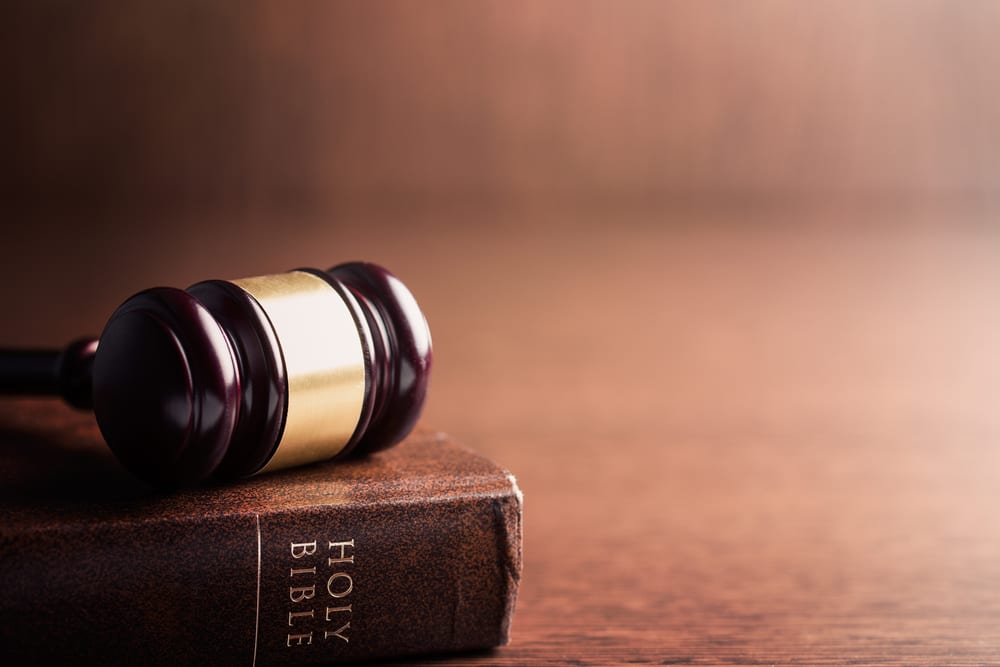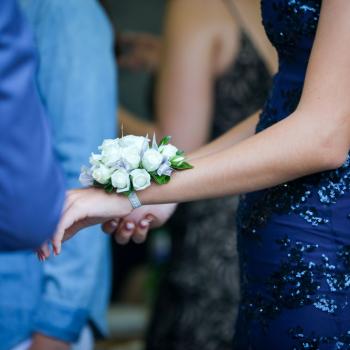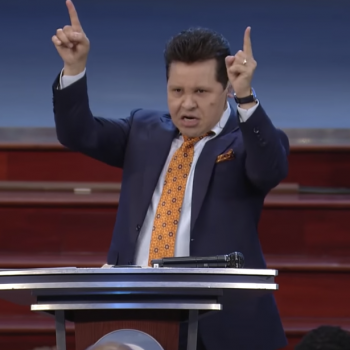This is a guest post by Rick Snedeker. He writes at the Godzooks blog.
…
Which should be granted primacy in America’s secular republic: freedom of religion or from religion?
It’s a daunting question that recently has even bedeviled U.S. Supreme Court justices, the crux of a compelling article by Ron Brownstein in The Atlantic last week, titled “The Supreme Court Is Colliding With a Less-Religious America.” The subhead projects how this “collision” might play out: The justices will intensify their push for “religious liberty.”

While most conservative analysts have cheered the Court’s moves in this area, centrist and liberal critics see the ingredients for a political explosion as the Court backs religious-liberty exemptions to laws on employee rights, health care, education, and equal treatment for the LGBTQ community.
“What we are seeing today is this effort to turn religious freedom into religious privilege,” Rachel Laser, the president and CEO of Americans United for Separation of Church and State, told [Brownstein in an interview for the piece]. Religious institutions and individuals are being given “the right to wield religious freedom as a sword to harm others, and frankly to dial back social progress in light of our changing demographics and progress toward greater equality.”
Brownstein contends that the Court’s decision last week rejecting New York’s COVID restrictions that apply to religious gatherings, using an apples to oranges comparison, is a harbinger of what may likely “become one of the coming decade’s defining collisions between law and demography.”
The demographic shifts to which he alludes include deeply sagging religious interest among young people and expanding secularization overall, plus steady decline in the past few decades of the aggregate number of white Christians in the populace, as well as Christians in general.
That contrast increases the likelihood of a GOP-appointed Court majority sympathetic to the most conservative religious denominations colliding with the priorities of a society growing both more secular and more religiously diverse, especially among younger generations.
…
In all these ways, “religious liberty” seems certain to become an even more crucial battlefield as the political cold war grinds on between a Republican coalition that mostly reflects what America has been and a Democratic coalition centered on what it is becoming.
The recent decisions by the Court’s conservative Christian super-majority, favoring religious freedom over civil rights, including cases absolving religious Americans from respecting the dignity of LGBTQ citizens, bodes poorly for future rulings, Brownstein warns:
In oral arguments on a case heard early last month, the Court’s conservative majority signaled that it is highly likely to rule that the city of Philadelphia cannot deny contracts to a Catholic social-service agency that refuses to certify same-sex or unmarried couples as prospective foster parents.
Citing George Washington University Law School professor Ira Lapu, Brownstein said that in Lapu’s 35 years teaching law he recalls having “never seen such a spurt of religious-liberty cases in such a short time, especially where over and over again there is a victory for religious-liberty claims.”
Browstein contends that the pace of such cases has proportionately increased as demographic shifts have made white Christians a minority segment of the population and “created the most pluralistic religious landscape in American history.”
This shift has been almost palpable. White Americans have hugely dominated the U.S. population for most of the nation’s history — enjoying a two-thirds majority as late as the 1990s — but by the second decade of the new millennium that traditionally predominant demographic group dropped to minority status for the first time, Brownstein explains, citing the National Opinion Research Center’s annual General Social Survey.
The Pew Research Center data on U.S. religiosity released in early 2020 ranked white Christians at slightly more than 40 percent of Americans, non-white Christians at 25 percent, and non-Christian theistic believers, 10 percent. Religiously unaffiliated citizens, including atheists and agnostics, now comprise 25 percent of the populace, which has surged upward from 17 percent barely 10 years ago.
One upshot of these social transformations is that white Christians — particularly Republican adherents — have coalesced behind a shared ethos of victimhood, where 62 percent of them claim they face widespread discrimination in these changing times, even more than African-Americans historically have and do still, Browstein writes, citing the latest PRRI (Public Religion Research Institute] American Values Survey. He quotes PRRI founder and CEO Robert P. Jones:
“I do think the sense that something is sunsetting, something is ending … has set off the kind of feeling of vulnerability, feeling of persecution, feeling of grief, all these things. Trump didn’t create them, but he has stoked those worries and concerns.”
Brownstein characterizes some Supreme Court justices as expressing a kind of snarky grievance regarding laws that appear to lean secular. Ultra-conservative Justice Samuel Alito insisted in a recent public speech that, “Religious liberty is fast becoming a disfavored right.” Justice Neil Gorsuch, also a staunch conservative, was more expansive in his disgust:
“At least according to the Governor, it may be unsafe to go to church, but it is always fine to pick up another bottle of wine, shop for a new bike, or spend the afternoon exploring your distal points and meridians,” Gorsuch wrote. “The only explanation for treating religious places differently seems to be a judgment that what happens there just isn’t as ‘essential’ as what happens in secular spaces.”
But, of course, shopping briefly in a mostly uncrowded environment is far safer than packing shoulder-to-jowel into a megachurch, masked or unmasked.
Nonetheless, the jury, so to speak, is still out on whether the Court will end up favoring “what American has been” to “what it is becoming.” On prioritizing freedom of or freedom from religion.
It appears American Christianity and other theistic religions, as they have been for a long while now in western Europe, are trending in the direction of the flightless and now extinct dodo bird.
But it may take some time.
(Image via Shutterstock)




It’s Moving Day for the Friendly ..."
It’s Moving Day for the Friendly ..."
It’s Moving Day for the Friendly ..."
It’s Moving Day for the Friendly ..."